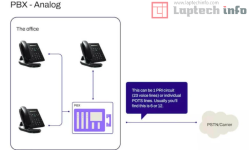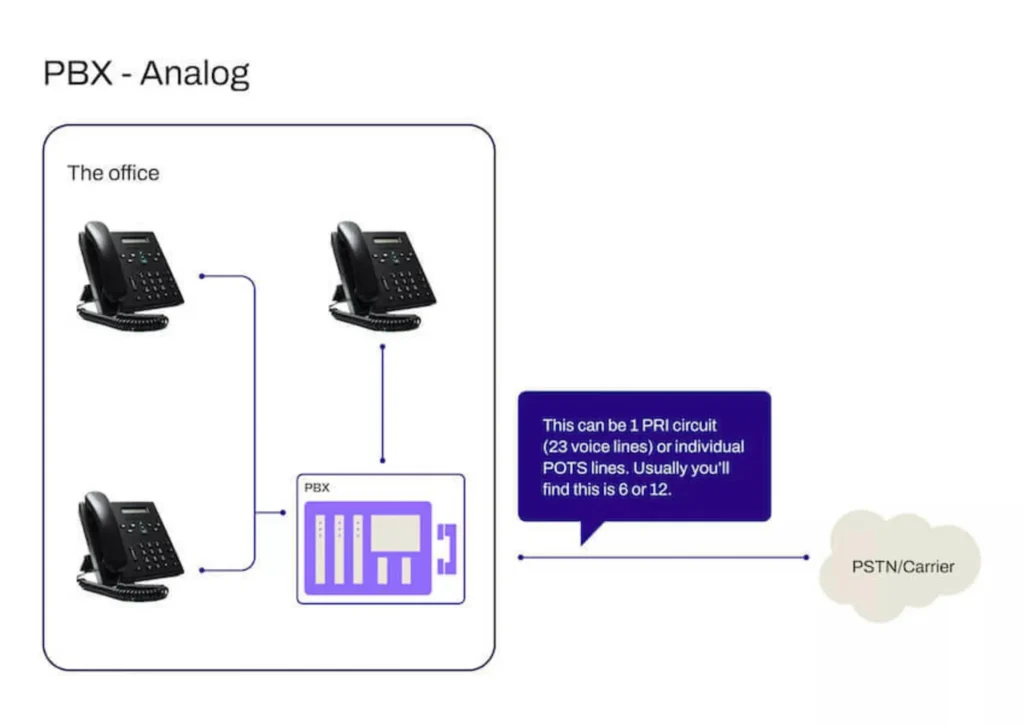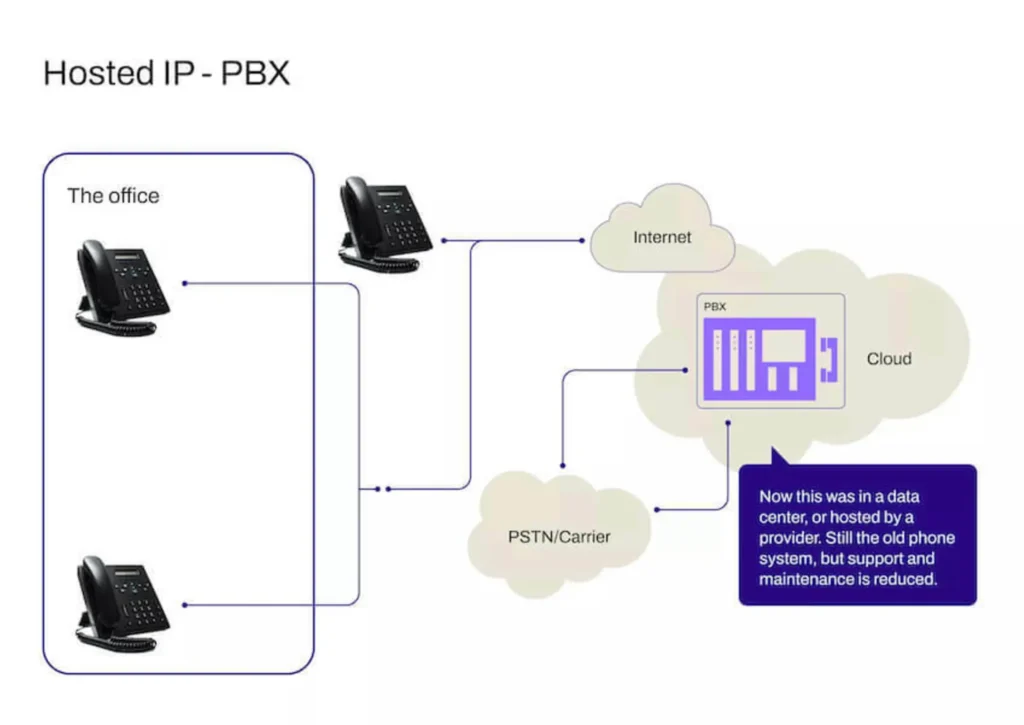
The term PBX (Private Branch Exchange) refers to a private telephone network used within a corporation or organization. Cloud PBX systems for small firms are becoming increasingly popular among modern companies.
In the midcentury, PBX (or Private Branch Exchange) systems changed commercial telephone services by allowing enterprises to make internal office calls.
Today, PBX has evolved significantly—and, as we’ll see later, has been supplanted by new innovations (and acronyms) in telephony, especially VoIP (Voice over Internet Protocol) technology and UCaaS (Unified Communications as a Service) platforms that allow you to make phone calls over the internet.
What is a private branch exchange (PBX) phone system?
Many firms now use software for their telecommunications. However, a few decades ago, practically all of these firms used classic PBX, which were essentially little telephone exchanges housed in your office. Everyone in the office would be connected via a real handset, allowing them to make and receive calls over the firm’s internal telephone network. Very analogous.Today, PBX solutions have undergone their own mini-revolution. You may come across “cloud PBX” or “virtual PBX” systems, which are essentially PBX systems with the added capacity to make calls via the internet. This technology is known as VoIP (Voice over Internet Protocol).
We’ll go into more detail later, but for now, know that the fundamental difference between VoIP phone systems and classic PBX is that VoIP eliminates the need for actual equipment (unless you want it) and is generally less expensive and more adaptable.
You also get more advanced tools like data and analytics, as well as the ability to call from any device.
Different kinds of PBX phone systems
There are four common types of PBX systems, each with its own set of advantages and disadvantages. In general, PBX-based phone systems are less flexible and scalable than VoIP and UCaaS platforms.Conventional PBX

Traditional PBX offers a basic, physical telephony solution to a workforce. This phone service would support both incoming and outgoing calls, as well as internal calls between staff members.
Business executives would have to spend significant upfront fees for new equipment and hardware, as well as telephony professionals to properly plug everything in.
You’d also need a dedicated space in your workplace to house all of the equipment, and if you needed to expand, you’d have to put your business on wait, hire experts, and relocate everything to a larger room. Yeah. There’s a reason why standard PBX isn’t as popular among businesses today.
IP PBX – Internet Protocol Private Branch Exchange
The internet revolution elevated PBX to a new level by connecting office-networked phones to a PSTN.IP (internet protocol) PBX systems increased business flexibility by connecting phone numbers via the internet, potentially allowing employees to dial in remotely, and offering extra capabilities like messaging and video conference sessions.
SIP trunking, or session initiation protocol, is used by IP PBX systems. SIP is an application layer that allows you to run a phone service from your workplace network and connect phone systems via the Internet.
Despite being more flexible than classic PBX, IP PBX still requires considerable upfront investments and specialists to handle your IP phones.

IP technology that’s used to make and receive calls over the Internet.

